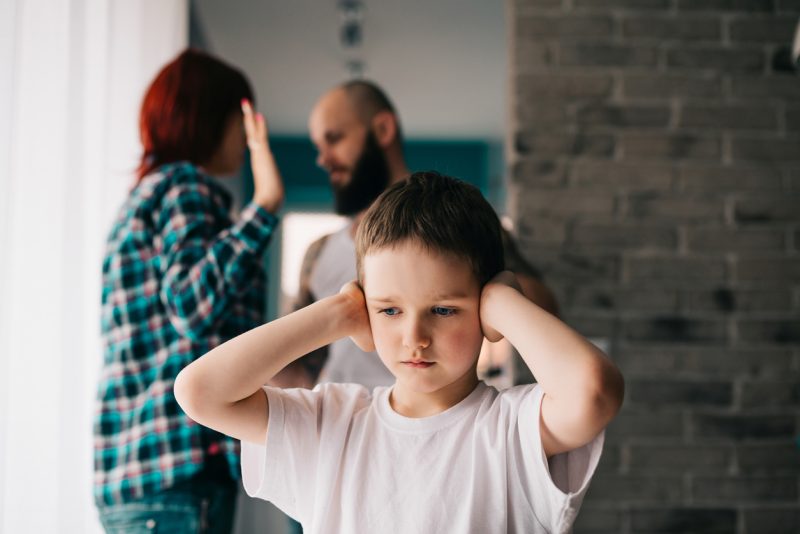 When we separate we feel a sense that we have lost our position in the family. Don’t forget that you are still your children’s father, even though you do not live with them. You must maintain a mindset and make it clear in your children’s mind that your family continues even though you don’t live with them every day. Your children now have two homes instead of one, there will be some adjustments around ease of access but your love and responsibility does not change and your efforts and determination to ensure that they know this will not go unrewarded.
When we separate we feel a sense that we have lost our position in the family. Don’t forget that you are still your children’s father, even though you do not live with them. You must maintain a mindset and make it clear in your children’s mind that your family continues even though you don’t live with them every day. Your children now have two homes instead of one, there will be some adjustments around ease of access but your love and responsibility does not change and your efforts and determination to ensure that they know this will not go unrewarded.
Feelings of guilt, loneliness and depression can definitely come from separation and for some can be quite intense leading to avoidance and solitude. There was a study conducted on men who after separating for 2 months, 1 year and 2 years from the family home all showed similar signs of avoidance i.e. not going home to an empty house, they would more likely work back late or visit a bar with a friend.
One of the loneliest times for separated dads is when they are driving away after returning the children to their mothers, this was definitely real for me. There are some great books to read on this subject. Reading can help you understand your own feelings and provide coping strategies to help you work through those times. I spent many a times in book shops in the “self Help” section looking for answers and ways to cope.
Remember, knowledge will help you get through this, so keep searching and reading up. Check out another post on our site that can provide some answers for you, click here Practical Steps to take when separating


























Introducing your child to your new partner
The advice in this article will be very difficult for some of you to agree with. That being said, let me also say that generalizing about people whose lives may be very complicated is difficult to do, so these are just general guidelines not informed by your particular story.
My rule of thumb is that divorced and separated parents should keep children out of their social lives until they have been separated or divorced for a period of at least two years and you have known your potential new partner for at least a year. Let me explain the easy things first.
New Partners
You might think your new partner is the greatest thing since sliced bread, but at one time you thought the same thing about the person whose name is on the bottom of the restraining order you just got. It’s hard to resist the power of someone who not only makes you feel good about yourself but reinforces your negative feelings about your ex.
With all of that conflict to concentrate on (especially if both of you are going through divorces), who has time to create trouble in the new relationship? What happens as a result is an extended “honeymoon period” in the new relationship. Having your kids along with your new partner helps legitimize the relationship, especially if your kids like your new partner’s kids and everyone gets along—but it might very well place unnecessary pressure on the kids.
Reasons to Take It Slow
One reason to take it very slow in having your children cozy up to your new partner is that often, the “second time around” relationship is just as bad as or worse than the first relationship you had, and you want to get away from that person too. That may be fine for you, but what if your kids like that person and the people who tag along with him or her? What happens then is that your children go through another round of sad separations, and ultimately they become mistrustful and suspicious of the next round of people you bring them into contact with. For kids, these separations can be as painful as the divorce from their mother or father.
Then there are the situations where you bring your children into contact with your new partner and they hate that person. What you have created in that circumstance is a pipeline of complaints that go from your children to the other parent, and that creates yet another set of problems.
Children of divorced parents often feel split loyalties between a new partner or parent figure and a biological parent. This is made worse when one of the biological parents is insecure or angry. It is very easy for children to pick up on, and as a result they try to please and soothe that parent by being critical of Mom or Dad’s new boyfriend or girlfriend.
With all of the problems that are associated with bringing children into contact with new boyfriends and girlfriends, it is a wonder why people do it with such frequency. There are two main reasons: One is that when parents separate they yearn for the return of a “normal” life with a companion. In their desire to create that normal life, they make decisions too quickly or without thinking through all of the possibilities and often end up replacing one dysfunctional relationship with another. As adults we are entitled to do this until we get it right, but we should try to avoid exposing children to our dating disasters. Related to this is the second main reason—when a parent adopts the philosophy that “My kids and I come as a package deal. If you think you want to be with me, my kids have to approve.” This is a perfectly reasonable philosophy, but it must be employed later rather than sooner. You should figure out whether the person is worth having your children evaluate them first.
Why the Two-Year Rule Works
I advocate the two-year rule because by the one-year mark most couples have seen each other at their best and at their worst. If you have seen your partner at your worst and he or she does not try to damage your self-esteem when you fight, and you have successfully solved many of the relationship problems you could not solve with your ex, then your relationship has a better than 50-50 chance of succeeding in the long term. I have seen quite a few complicated and difficult circumstances arise because people are in too much of a hurry to introduce their children to their new partners.
Another advantage is that after some time has passed, even young children will expect their mothers and fathers to want companionship, and the children will not be as focused on wanting to reunite the family. There is no guarantee your child will ever stop wanting this, but in most cases children will want it less after a few years or at least accept the reality that it’s not going to happen.
Once you have passed the two-year mark of being out of your old relationship, and once you know your new partner for a year, you can start talking to your children about meeting your boyfriend or girlfriend. If your children are old enough to understand what a boyfriend or girlfriend is, don’t beat around the bush. This is actually one of the advantages you have gained by waiting such a long time before introducing the person.
The Sleepover Question
Different people have different ideas about whether parents should invite their boyfriends or girlfriends to sleep over at their house. I would say avoid it, especially with young children. Children are growing up very quickly these days, and they will start to ask questions about whether you are having sex with your boyfriend or girlfriend because you are sleeping with them. You could properly tell them this is none of their business, but the situation will nevertheless make them feel uncomfortable, and you will ultimately have to deal with what kind of model this presents to your children, especially when they are fifteen years old and want to bring their boyfriends and girlfriends home to your house to sleep over.
Finally, it might be very tempting to bring your little children into bed with you and your new partner to snuggle or watch television, but I have seen this cause problems between mums and dads who become furious at the thought of their children climbing into bed with someone who is a “stranger” to them and cuddling. Before you permit your child to do this, ask yourself it is worth the legal fees you will have to spend in order to convince someone that you think there is no harm in it.
Quick Tips